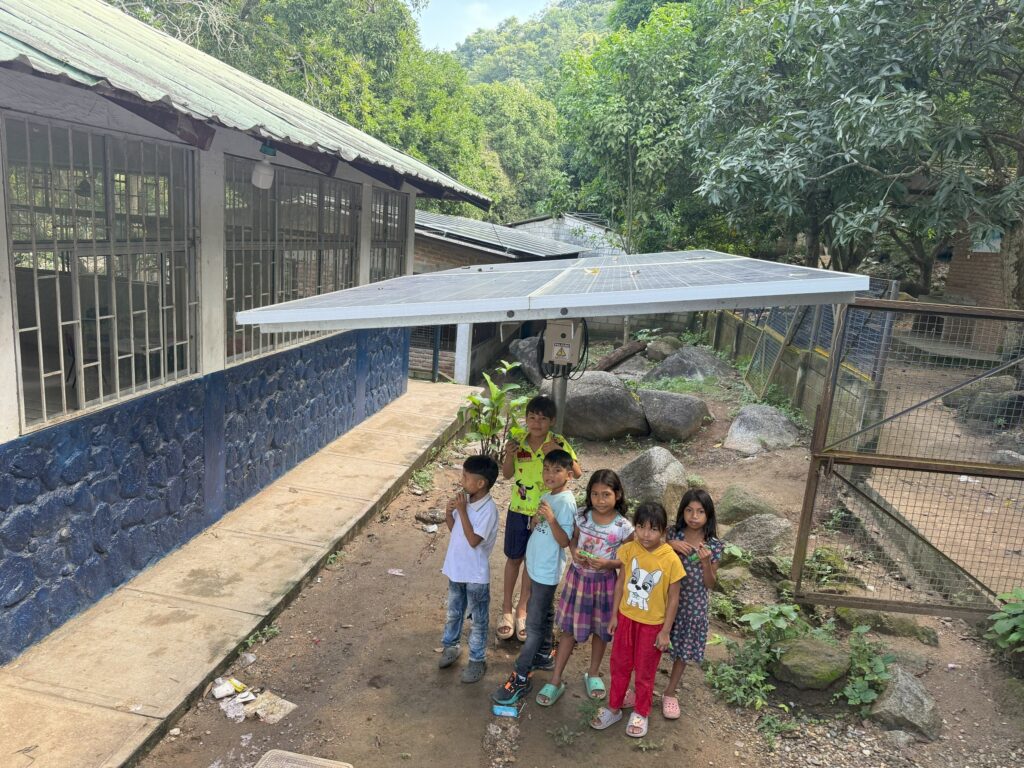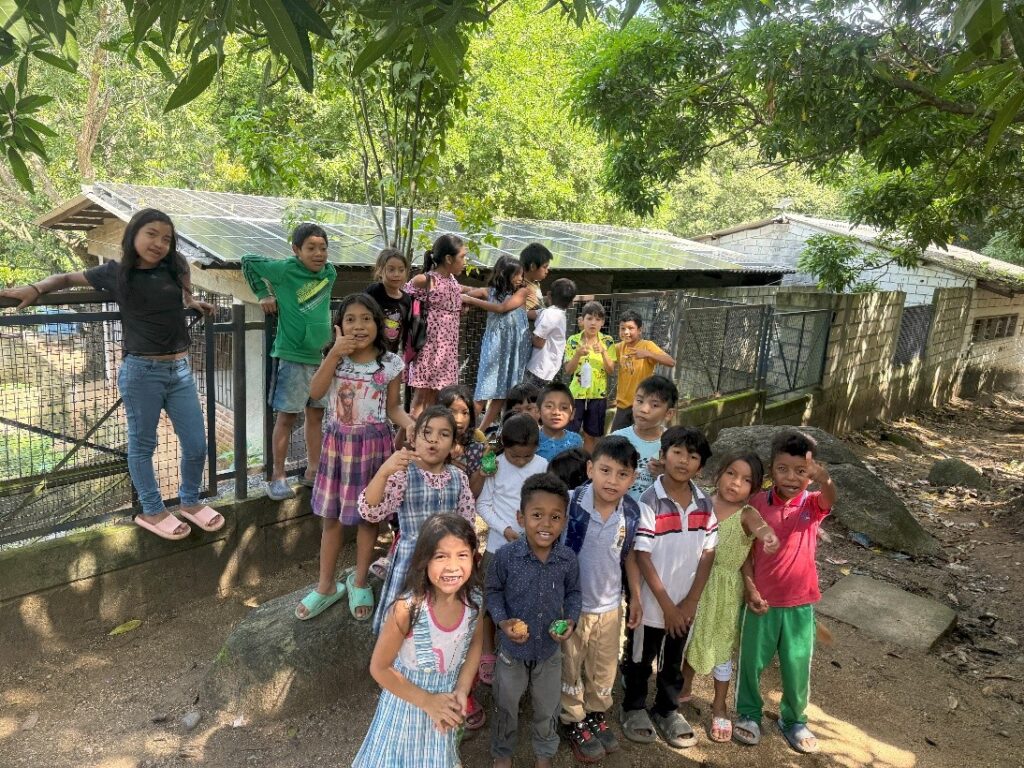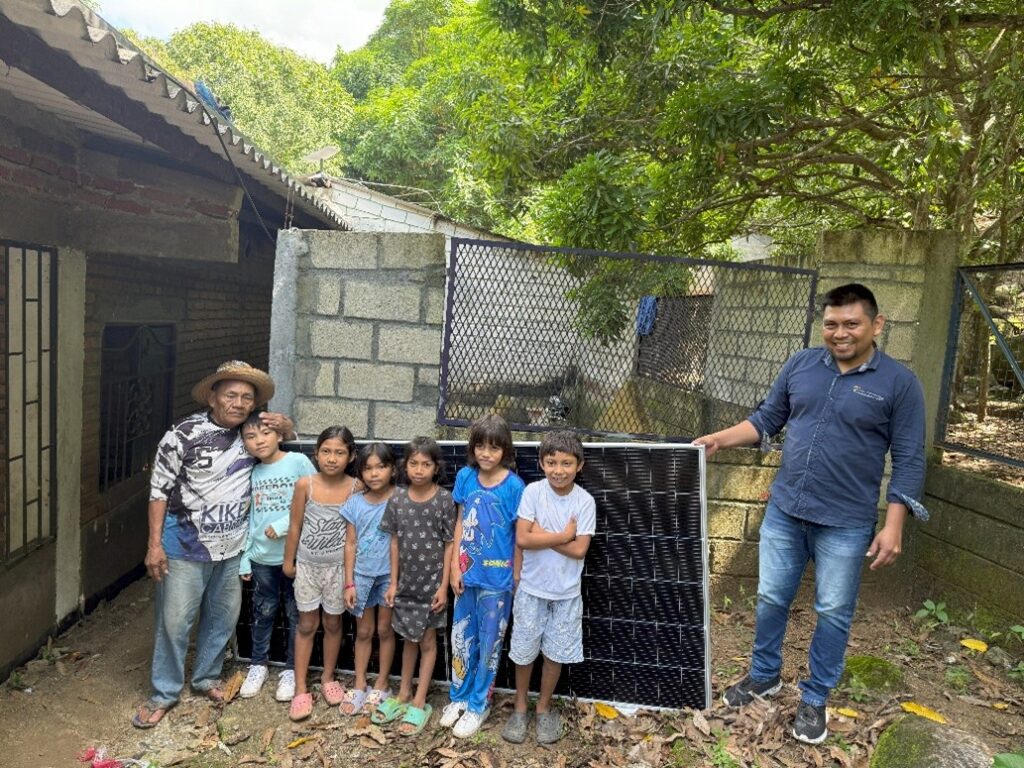The Internet Provision Program in Indigenous Communities in the Colombian Andean Mountains is a community-driven initiative led by Environmental Women ORG, aiming to deploy resilient and culturally-adapted community networks to bridge the digital divide in four highly vulnerable indigenous communities: Narakajmanta, Wiwa, Kankuamos, and Kogui. These communities, located across 14,000 hectares of the Sierra Nevada de Santa Marta, are facing the dual crisis of accelerated climate change and chronic disconnection from digital infrastructure. The absence of internet connectivity in these territories has magnified the consequences of climate-related hazards, notably the increase in vector-borne diseases such as dengue, chikungunya, and malaria, as well as the inability to report and respond to forest fires fueled by prolonged drought and rising temperatures. In the last five years, disease outbreaks in these communities have increased by 60%, while the number of uncontrolled forest fire events has tripled, threatening sacred territories and critical biodiversity corridors.
In response, our program will design, install, and maintain decentralized wireless mesh networks powered by renewable energy systems, following the principles and phases outlined in the Community Network DIY Toolkit: assessment, planning, deployment, and sustainability. A total of eight solar-powered connectivity nodes will be established in strategic sites, each with a minimum range of 5 kilometers and connected to a central backbone point leveraging long-range Wi-Fi or satellite backhaul. These nodes will ensure broadband access for approximately 5,200 indigenous people, 70% of whom are women, girls and LGTBI caregivers playing vital roles in health, food, and environmental stewardship. The technical infrastructure will include solar panels with battery systems, ruggedized routers, towers or masts built with local materials, and open-source firmware with embedded caching systems to reduce bandwidth costs and ensure offline access to key public health and climate response resources.
The program is rooted in community ownership and technical empowerment. Thirty-five indigenous women and youth will be trained as Community Network Stewards, in charge of maintenance, first-level support, and climate-health data collection using digital tools. Locally developed dashboards and early warning content will be integrated into the network, including vector-disease surveillance maps, open-access fire detection systems, and downloadable public health protocols in native languages. The system will also incorporate a feedback loop between indigenous knowledge and scientific data, ensuring mutual reinforcement for disaster preparedness and cultural preservation. We anticipate a 70% increase in early alerts reaching caregivers and a 50% reduction in fire-reporting times by the second year of implementation.
This program is more than a connectivity project: it is a transformative, ecofeminist model for digital climate justice, driven by indigenous women and grounded in resilience. By embedding connectivity within a broader vision of environmental management, gender equity, and self-determination, the initiative will offer a scalable blueprint for other disconnected and climate-vulnerable indigenous territories in Latin America and beyond.





+ There are no comments
Add yours